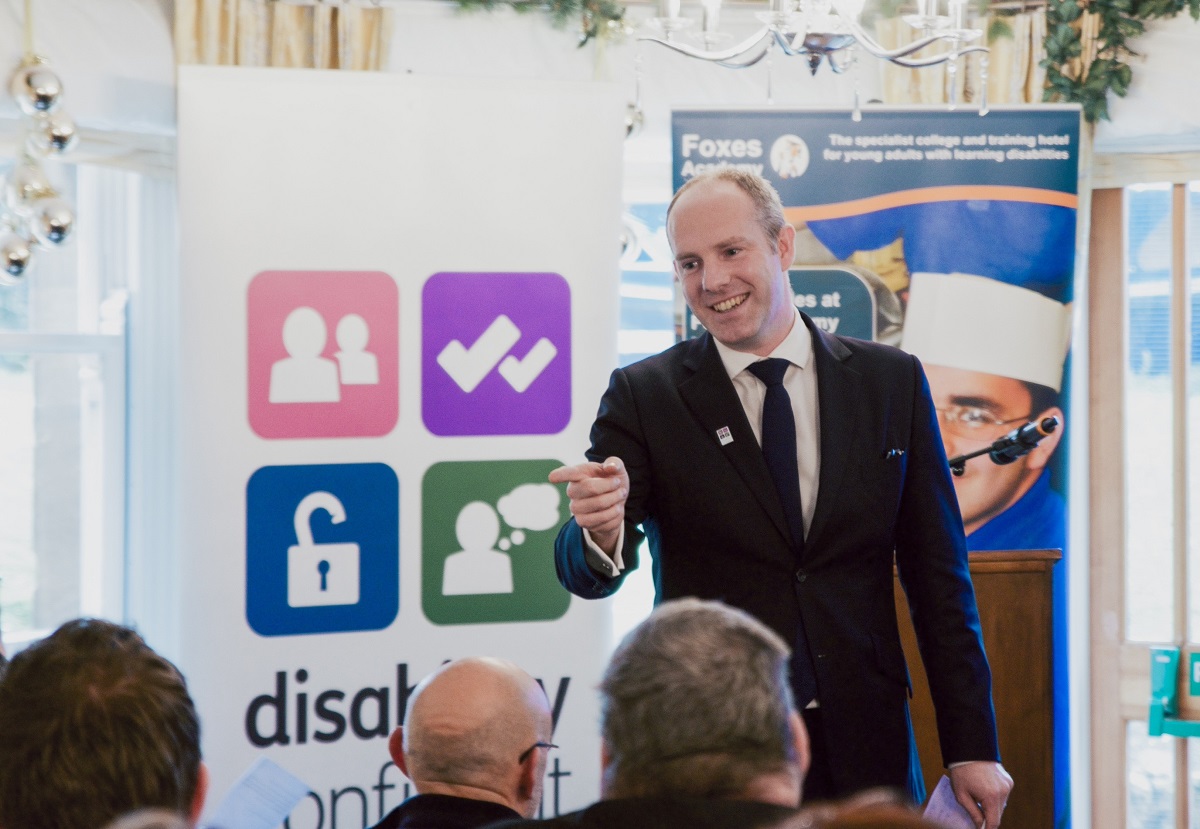
It’s been just over a year since I was appointed as the Minister for Disabled People and I’m thrilled with what we’ve managed to achieve in that relatively short space of time. All of the work we’ve been doing has had one overarching goal in mind: to change attitudes to disabled people in this country and build a more equitable society.
It is clear that the only way to do this is to build a system in which disabled people are empowered to fulfil their potential. This is my priority, and we’ve backed it up both with specific, tangible policies that will deliver on our principles as well as a record £50 billion a year to support disabled people and those with long-term health conditions. In what follows I hope I can show how these policies and funding commitments complement the new conversation that we want to have about disability.
At the start of this Parliament the Prime Minister announced our ambition to halve the disability employment gap, and recent figures show that we have already increased the number of disabled people in employment by 300,000 over the last two years. We know that there’s much further to go but this huge increase shows we’re headed in the right direction and we’re determined to maintain this momentum.
An essential part of this plan is to effectively communicate the value that disabled people add to a business. That is the aim of our Disability Confident campaign which is currently signing up over 100 new businesses a month, and providing a model to encourage employers to recruit and retain disabled people. We’re increasingly seeing that by working behind the scenes and getting people into a room together we can be more effective in finding solutions. Some of the most insightful conversations I’ve had have happened over a cup of tea, enabling small or medium sized employers to speak frankly about the barriers faced by disabled employees.
Another key strand of our work has been the transition from Disability Living Allowance (DLA) to Personal Independence Payment (PIP). When we began the transition there were significant and well known challenges in the implementation of PIP, but in the last 12 months it is widely accepted that the new benefit has settled as we continue our rollout. Vital to this achievement has been our regular interaction with a wide range of stakeholders, particularly the nation’s leading disability charities. This input has helped shape our on-going improvements to PIP, as has the first independent review carried out by Paul Gray in 2014 – we are also looking ahead to the second independent review, to report by April 2017. The result is that today 22% of people on PIP are awarded the highest possible rate of benefit compared to only 15% under DLA.
And alongside these on-going pieces of work we’ve had other great victories this year. There have been exciting developments in our work on the Built Environment and we’ve now handed this work over to the Construction Industry Council. We also managed to secure additional funding for Access to Work equivalent to supporting another 25,000 people through the scheme. And I was delighted to be involved in the Inclusive Technology Prize, awarded to individuals and small businesses for inspiring technological innovations that will make a real difference to the lives of disabled people.
More recently I announced that Paul Maynard MP will be leading a taskforce looking at how we can make apprenticeships more accessible to people with learning disabilities; this will not only help us in our ambition to halve the disability employment gap but will also contribute to our commitment to deliver 3 million apprenticeships by 2020.
What has become increasingly apparent to me is that these successes happen when you bring people together - and the results speak for themselves. This is now my favourite part of the job: going on visits and harnessing the enthusiasm that’s out there to find solutions to these challenges.
These visits are documented in the photographs that hang on my office walls, from meeting ambassadors like Lord Holmes and visiting places like Foxes Hotel in Bridgewater. They remind me why it’s such a privilege to do this job and as I move into my second year I’ll be adding a lot more to my collection.
Justin's Thoughts On His First Twelve Months As The Minister For Disabled People

Posted in Articles on May 16, 2016
